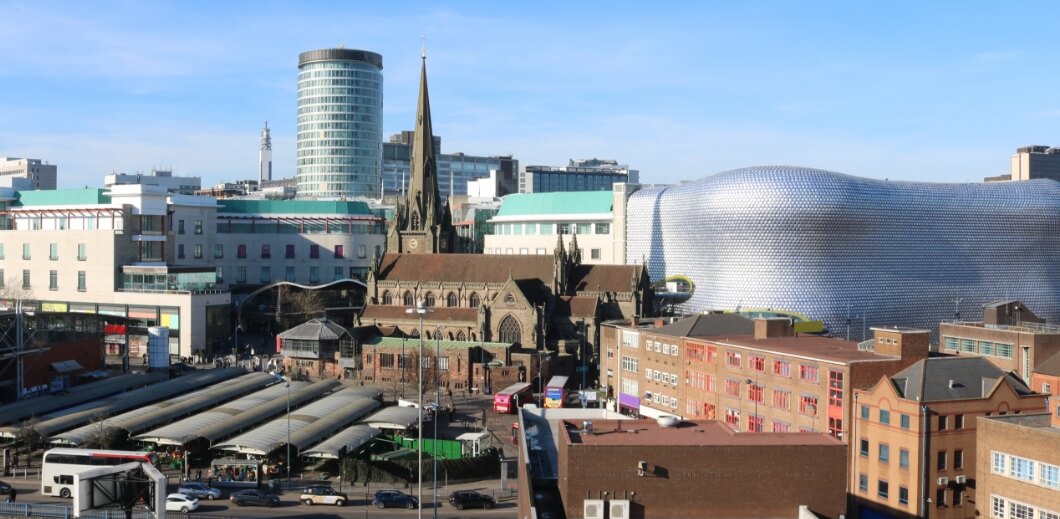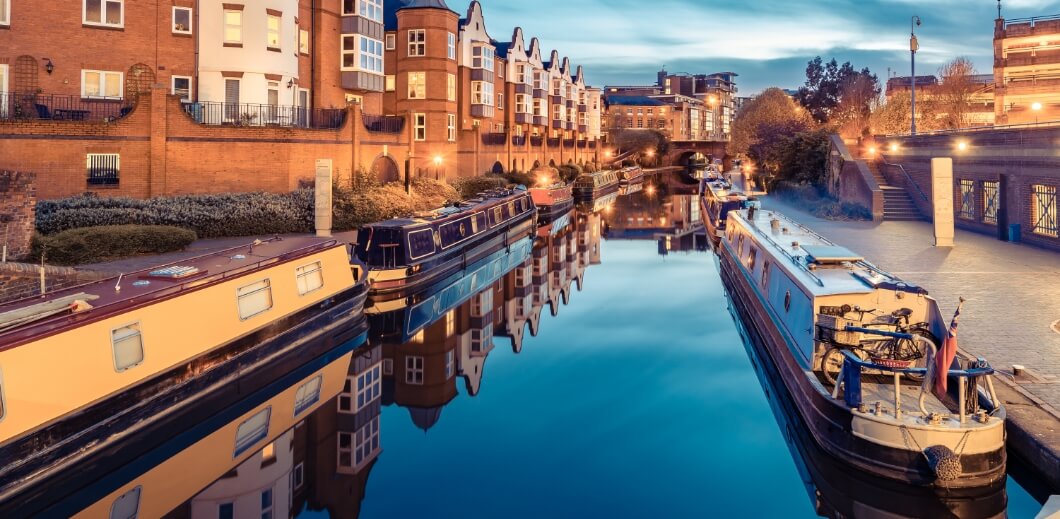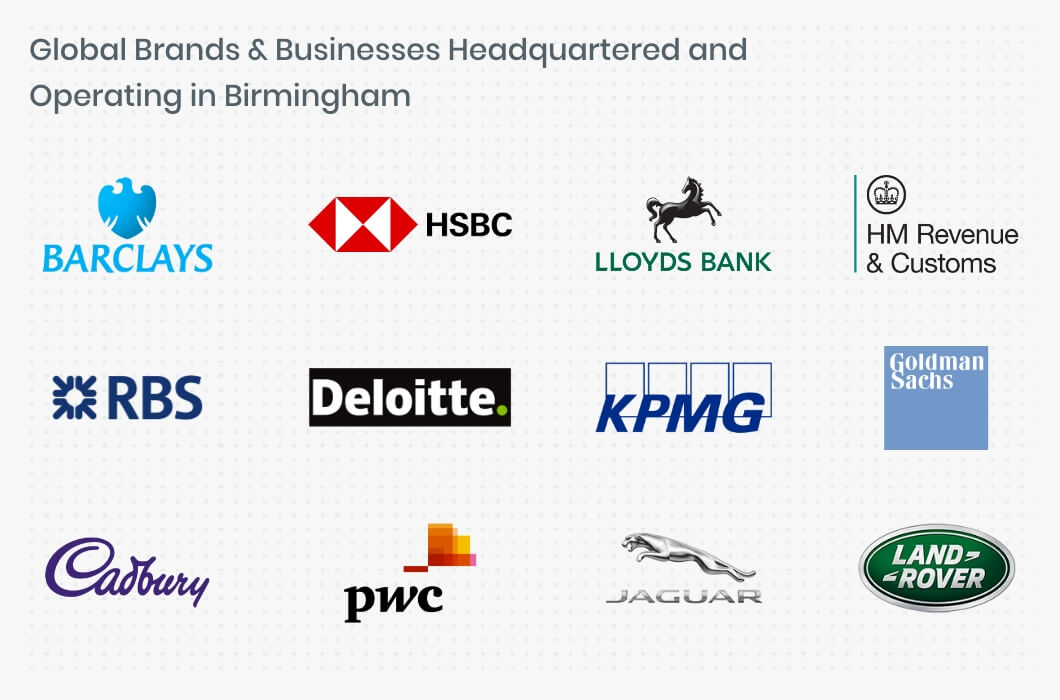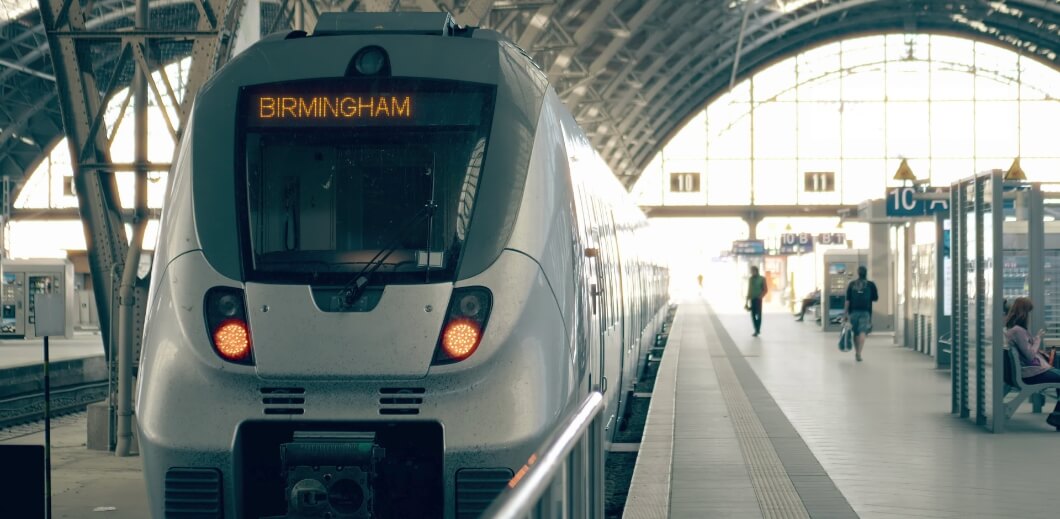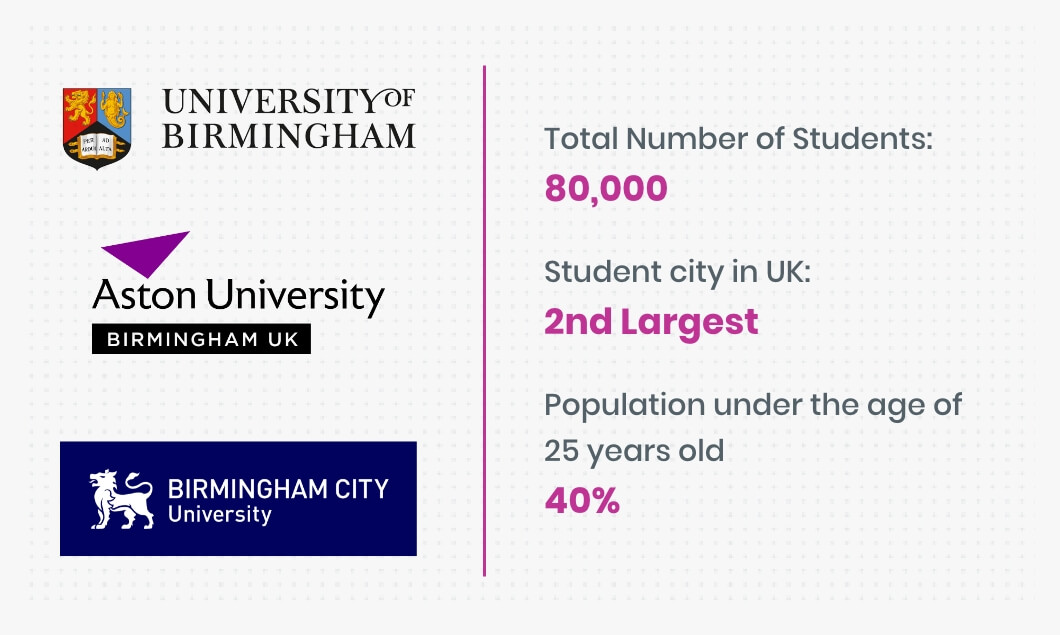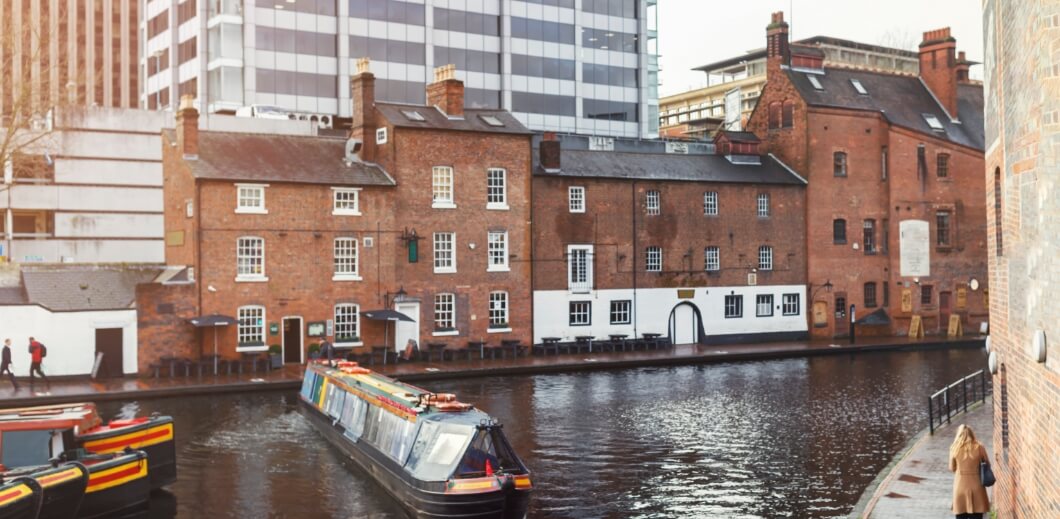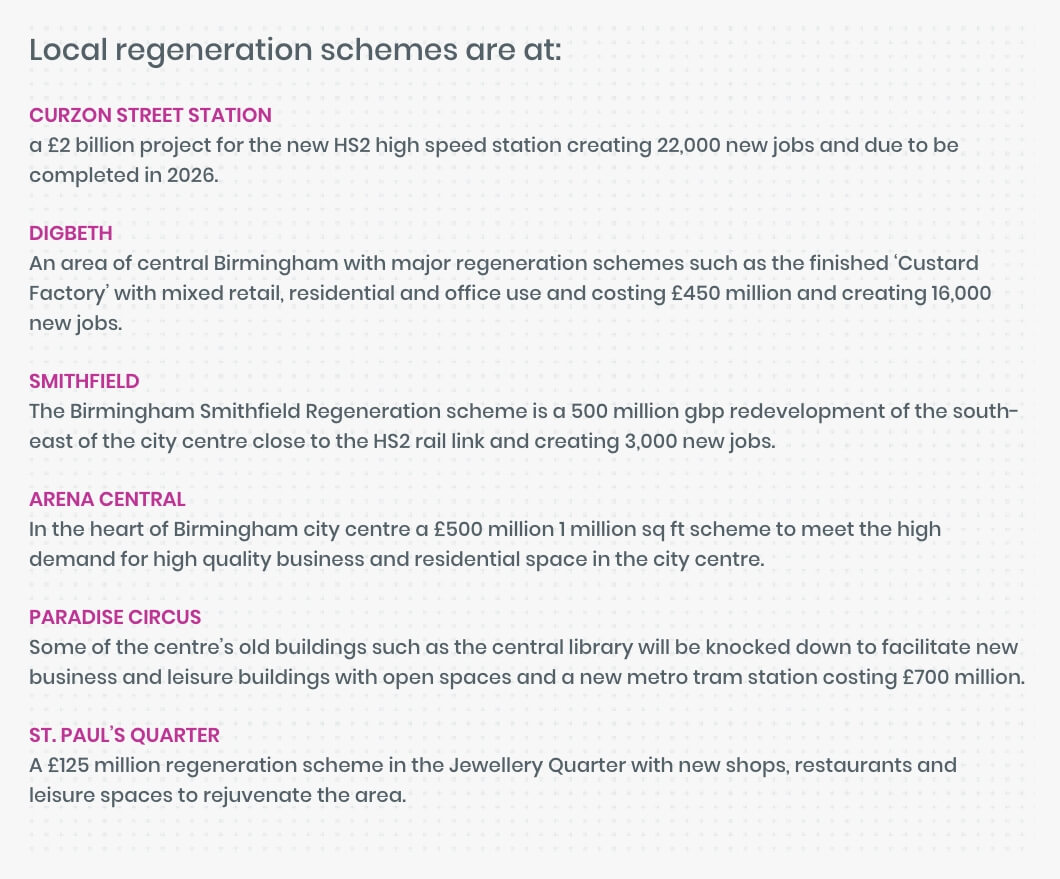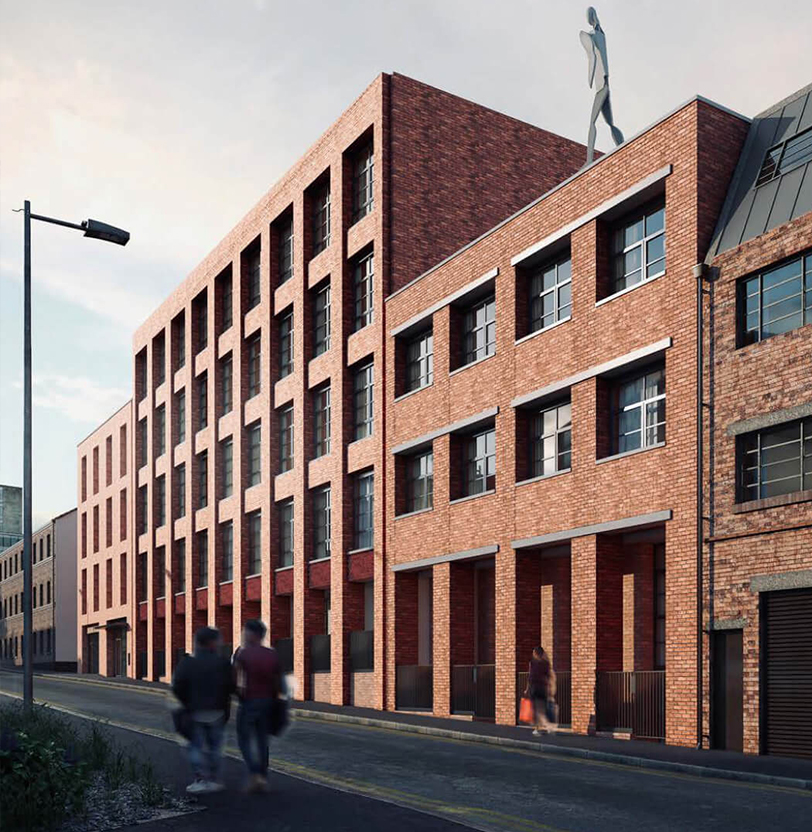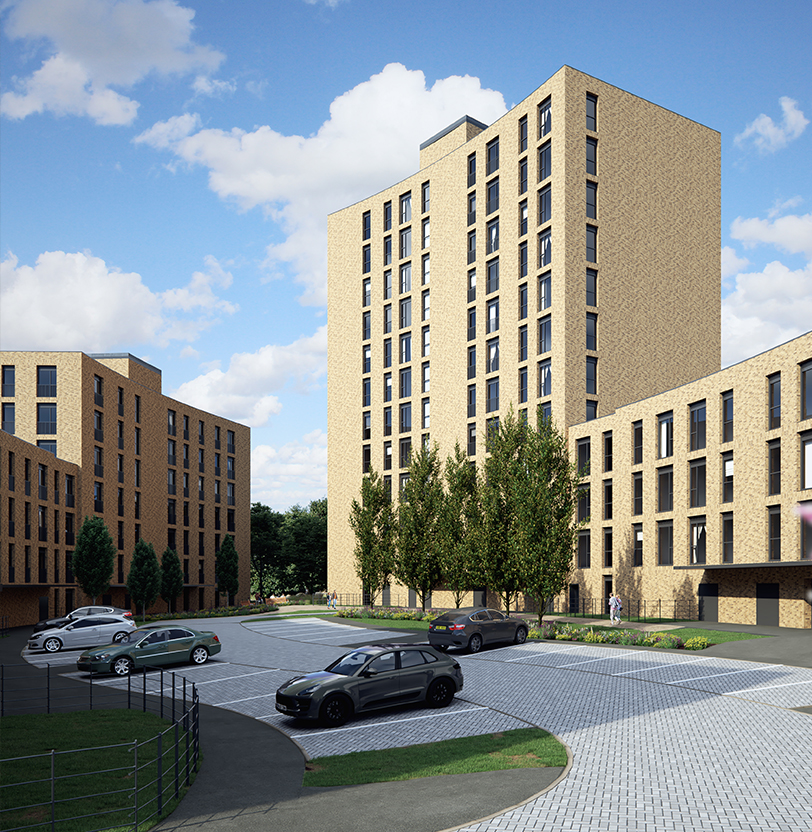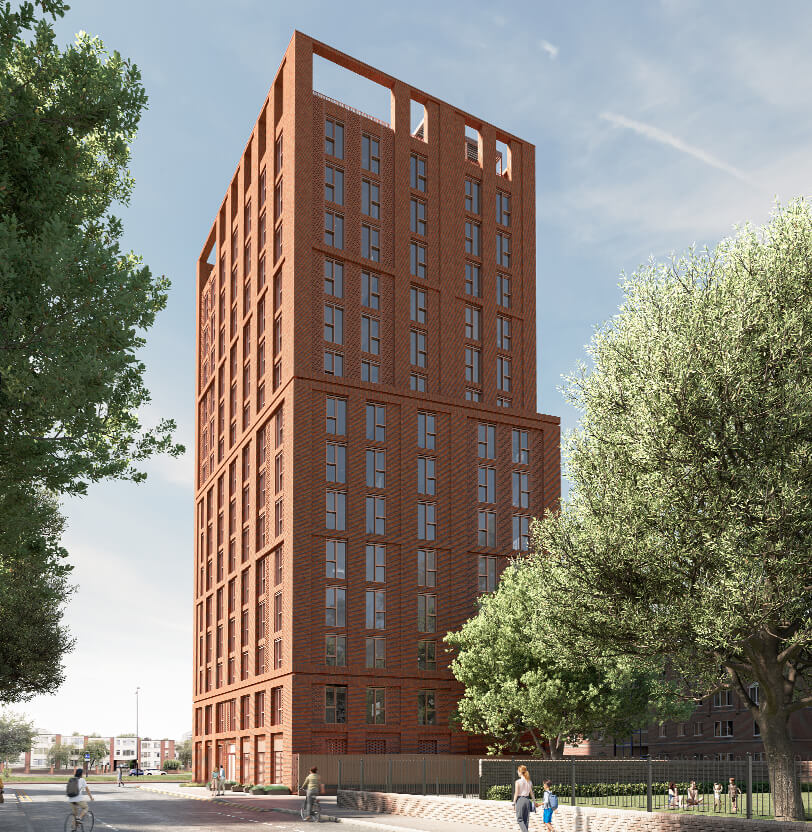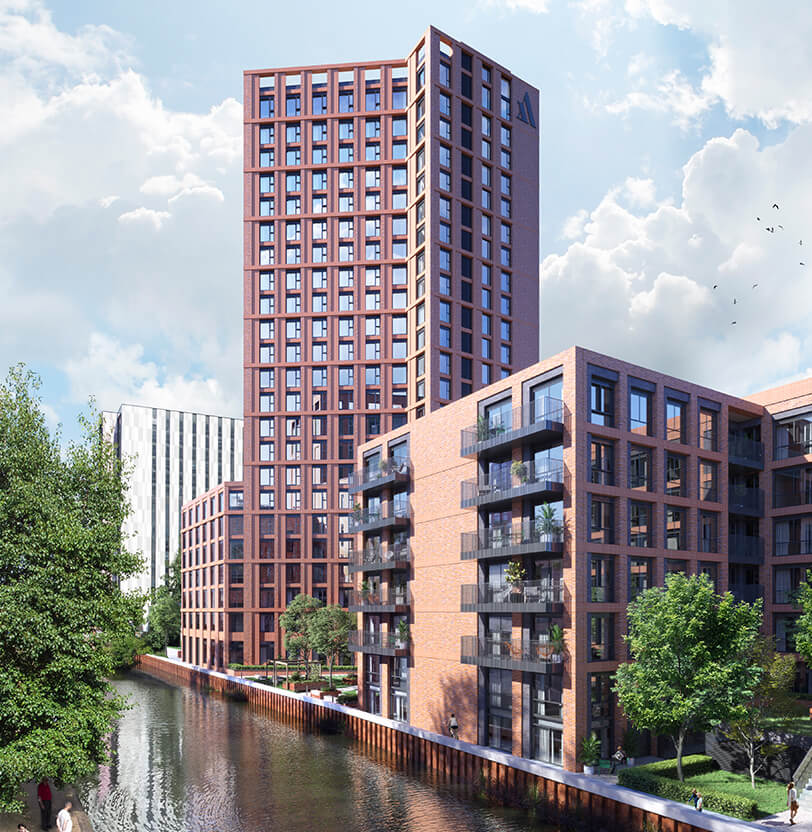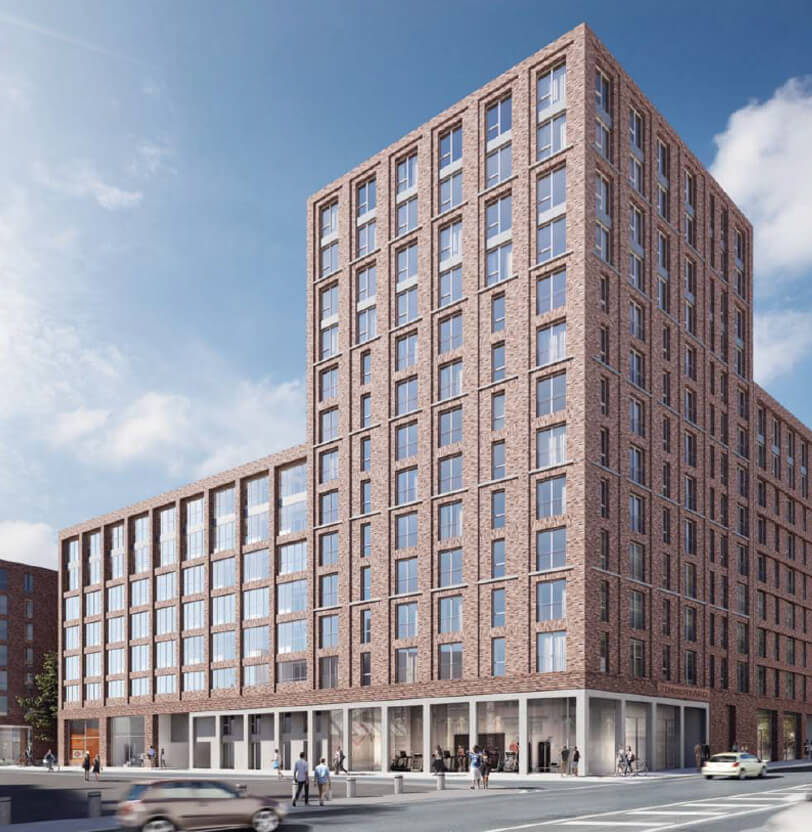Birmingham
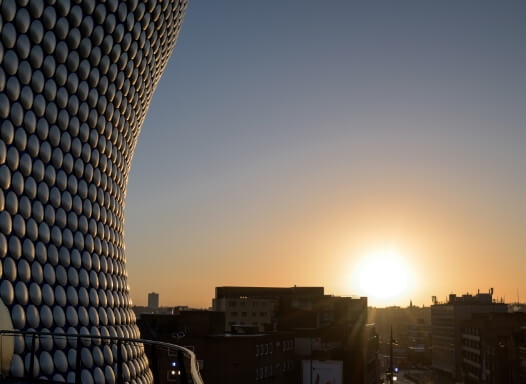
Situated centrally in the UK, Birmingham has become one of the most sought-after destinations for companies relocating out of London and in demand cities for investment in the UK.
See the latest projects in Birmingham
With a new period of sustained economic growth property investment in Birmingham is becoming more popular and is gaining global recognition for its strong investment potential, high demand, and rising rent and property prices.
WHY INVEST IN BIRMINGHAM
Birmingham is strategically located in the heart of the UK and one of the UK’s most important regional hubs. It has the largest economy outside of London worth £32.5 billion. However, it’s Birmingham’s future growth projections that make it such an exciting area to invest in.
In the near years, major transport infrastructure projects such as the HS2 high speed rail link into London will accelerate the city’s economic growth leading to a sustained growth of the population and ultimately beneficial to the property market and hence you the investors.
As a city with the youngest population in Europe and a major undersupply of good quality property in the city centre and surrounding areas, Birmingham is hugely attractive for global property investment. It is predicted by Savill’s that average property prices will increase by 21.7% on average in the next 5 years. These are the top reasons why Birmingham is a prime investment opportunity for 2022.
LIFESTYLE
Birmingham has more canals than Venice and more open spaces than Paris, just some of the reasons why Birmingham is voted in the top 50 most liveable cities of Mercer’s quality of living report. Also, PWC’s emerging trends in real estate recently ranked Birmingham as the most investable city in the UK.
ECONOMY
Birmingham’s stunning revival has resulted in the economy growing by 90% since 2020 to £32.5 billion and is expected to grow a further 81% reaching £59 billion by 2035. The region has recently recorded the highest growth in employment of all UK regions with 81,000 new jobs in one year.
The average GDP per person has risen 63% since 2000 and is expected to increase a further 70% by 2035.
EMPLOYMENT
Attracted by the city’s sustained growth, numerous international companies have relocated to the city. Birmingham is now a popular alternative to the capital for international companies to set up headquarters. Global companies such as HSBC, Deloitte, Deutsche Bank, Goldman Sachs, PWC, KPMG, RBS, ROLLS ROYCE AND JAGUAR LAND ROVER have relocated to the city. Birmingham also has the highest number of business start-ups outside of London. With a young dynamic and well-educated working population all showing signs for continual prosperous growth and investment.
TRANSPORT & HS2
With the government’s new £107 billion high-speed railway network, High-Speed 2 (HS2), property prices in Birmingham are expected to surge. Bringing down the commute time to London by train from 90 to just 45 minutes by 2029, Birmingham will be a prospect for millions of Londoners looking for cheaper rents and a better quality of life.
EDUCATION
Birmingham’s nice lifestyle has attracted many people from the UK and abroad to enroll in the city’s educational institutions. Drawn by its cultural diversity, standard of living and universities the city is in the top 50 best student cities. Birmingham has 5 universities with 25,000 graduates a year of which 49% decide to stay in the city after university, contributing to a highly educated workforce. Birmingham has around 65,000 students spread over 5 different universities.
POPULATION GROWTH AND DEMAND
Birmingham’s working population has increased by 20% in the last 20 years, compared to the UK average of 11% and is the second most populous city in the UK, with 1.15 million residents this is forecast to grow to 1.23 million up 7% by 2035.
The city is large and incredibly young with 40% of the population under the age of 25, which makes it the youngest city in Europe. The city grows by around 10,000 people every year.
HOUSING MARKET
Despite this rapidly expanding population, Birmingham has a comparatively low supply of purpose-built rental homes. The housing deficit is forecast to be 29,350 by 2031. This supply and demand imbalance presents a prime opportunity for Build to Rent developers, investors, and their tenants.
RENTS ARE RISING
Across the UK, rents are rising at the fastest rate ever recorded by Rightmove, now up 8.6% annually outside of London. By September 2021, the increased demand in Birmingham helped rents to grow to 10% higher than pre-covid levels.
With rents and demand at an all-time high in Birmingham, the rental yields for 2022 are averaging 6.56% according to Zoopla. This is higher than the UK average and is expected to rise even further according to JLL’s report, which predicts that rental prices in Birmingham could increase by 12% over the next five years – the highest level of growth in the UK.
PROPERTY PRICES ARE INCREASING
House prices in the city are growing too, with Rightmove reporting an increase in the average price of a sold property of 12% compared to last year, and 17% up on 2018. With no end to housing shortage in sight and a booming economy house prices are forecast to grow by an exceptional 19.5% from 2021 to 2025. Currently, however, average house prices in the city are still 34% below the national average with almost half the affordability ratio of London.
With the implementation of the government’s £107 billion high-speed railway network, High-Speed 2 (HS2), property prices in Birmingham are expected to surge as a direct result.
Gaining recognition internationally for its strong potential and excellent forecast for 2022 and beyond, the future is looking bright and never has there been a better time to invest in Birmingham.
REGENERATION – THE BIG CITY PLAN
Birmingham’s ‘Big City Plan’ for the city centre is the most ambitious development project ever undertaken in the UK. This 20-year plan’s vision is to encourage and support Birmingham’s continuing transformation into a world class city.
- Create 50,000 new jobs
- 1.5 million square metres of new mixed use floorspace
- Contributing £2.1 billion to the economy each year
- Creating a well-connected and walkable City Centre
- Providing 65,000 square metres of new and improved public spaces
- Providing 28 kilometres of walking and cycling routes
- Providing over 5,000 new homes with new leisure and recreational facilities to attract more families
- Valuing the city centre’s heritage and cultural assets
- Delivering five areas of transformation supporting the growth of the City Core

